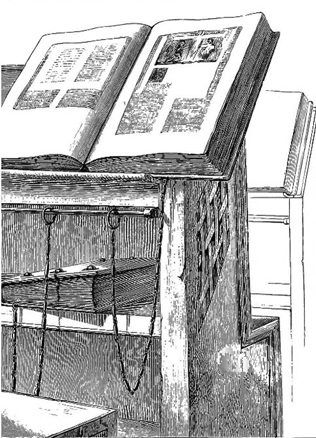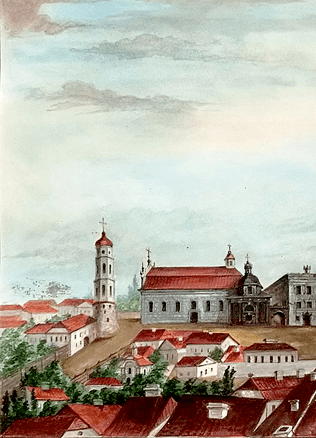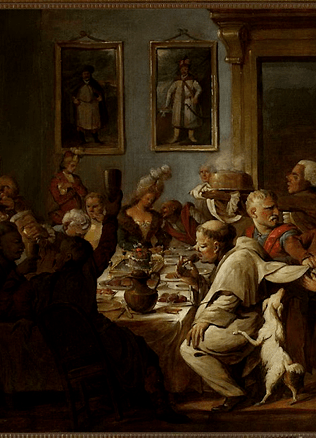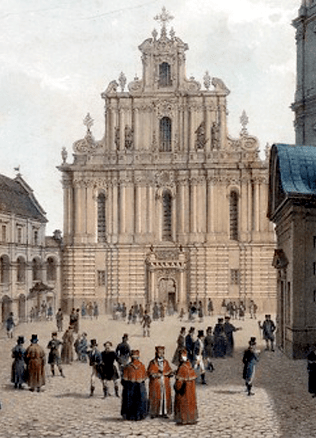Everyday Life in the Diaries of the Nobility
Many representatives of the nobility of the Grand Duchy of Lithuania wrote their diaries in the second half of the 17th century using calendars – the small books that were popular at the time and included many blank pages for notes. In order to cast a glimpse into everyday life of the Lithuanian nobility, we will go through four diaries written in last decade of the 17th century. Two of them have been published, those of Stanisław Niezabitowski who was a steward of lands owned by the Radvila family in Slutsk, and Kristupas Zviša, the voivode of Minsk. The unpublished two belonged to Jonas Leonas Ozienblovskis from the district of Ukmergė and Kristupas Karolis Mykolas Butleris from the district of Braslaw.
Laconic chronicles of the everyday
Ozienblowski would very often put just one sentence (1694.01.24 Set off for Riešė, thank God, everyone is healthy; 1696.01.27 Travelled to Riešė from Vilnius before night) or just one word (1694.06.17–25 Vilnius; 1696.05.20 Riešė). Sometimes he describes his routine with humour (1696.03.21 Bought myself new pants and happily slipped into). Many observations deal with the weather (1694.04.01 First quite heavy rain this year. Our river is swelling rapidly. Snowstorm and high winds since April 4, it’s been snowing for several days. The storm eased in the morning of the Maundy Thursday [but] the road was too bad and the snow too high to go to the church; 1696.05.01 Little snow was followed by a short-living hail. 05.02 Snow and cold storm the whole day again.)
Ozienblowski would travel short distances in eastern Lithuania, to and around the towns of Vidiškės, Vilkmergė, Kurkliai and Balninkai. Sometimes he would visit Vilnius, Riešė, Kamajai and Rokiškis. But in 1694 he went to Gdansk. It looks like this nobleman from Aukštaitija spoke Lithuanian because the October 1 note says that the travellers could not communicate with the locals all the way between Vėluva and Bartenstein in Prussia because they could not find anyone who could speak either Polish or Lithuanian.
Financial and economic matters are important, just like horses (1694.04.17 A two-year old horse has been castrated, let God give him a good health; 1696.03.04 I mated a sorrel mare with my grey horse three times during the young moon). Some notes speak of harvest, debts, prices, various meetings, visits, and deaths. Sometimes Ozienblowski documents seemingly unimportant developments (1694.05.03 Started drinking milk).
The diary provides virtually no details about family life the rare exceptions being the notes about his wife when she set off to visit her parents or so did the owner of the diary himself.
The nobleman was fond of canaries (1694.04.01 I mated the canaries that same day. 1696.03.09 I mated the canaries. 10.20 Rats harmed the canaries.)
Judging by Ozienblowski’s diaries, the GDL troops would show more activity by the end of each year (1694.12.15 The Tatar regiment under the commandment of mister Lettow (?) agreed to leave my lands for 23 zlotys. Wolves ate up a large bitch in the yard that same night. 1696.12.20. The regiment of heavy cavalry under the commandment of his grace the butler of the GDL rode through Vidiškiai not stopping and taking nothing, the greatest miracle.) In order to minimise losses, landowners often tried to bribe the troops and did not react to minor looting by soldiers.
The register of manual labour
Michał Butler had his residence in the village of Kazitiškis and mostly travelled to and between neighbouring towns and villages including Gudiškės, Dūkštas, Salakas, Vydžiai and Meikštai. He also owned lands around Braslaw. He has left detailed descriptions of his economic activity in his diary: how much he delivered, who bought what, how much of various goods is left in barns, granaries and stackyards, what he sold (02.09 Sent carts with rye, butter and cheese to Vilnius together with four fat bulls).
The diary also mentions horses, Butleris describes the daily tasks delivered to peasants, main work already finished or just started, he also mentions artisans
(01.07 His grace mister Motiejus Jelenskis, the elder of Braslaw, sent a boy, Motiejus, from Starkėnai to become weaver’s apprentice. 01.12 Began distilling vodka from the grain bought earlier. Martynas, a cobbler, accomplished his job and left the same day. 11.24 A mason began building a furnace.)
Butleris usually spent a lot of time in his mansions or travelling – to neighbouring towns and villages and further away (06.11 Arrived in Vilnius, staying in the Horse Market [square], in the house of Mr. Paszkewicz. 08.20 Came back home. One day before that my servants Petras and Adomėlis ran away causing quite a bit of damage on Friday night. 08.22 One [o’clock] at nigh on Sunday robbers killed Adomėlis).
He almost never mentions his family and his wife features only occasionally (03.07 My wife went to the fair in Druja to buy various furs. 09.21 My wife went to Salakas to take part in the christening of a son of his grace mister Bure, whose son Juozapas Motiejus was born on September 20 before noon, my wife was a godparent).
Butler is very precise when writing about what he has given whom and what people he met and where (01.15 A priest from Salakas came. I gave him half a barrel of rye, half a barrel of buckwheat, one eighth of a barrel of peas and piece of speck. 03.30 A Bernardine monk left taking with him a fat bull, five capons, two geese and a turkey. 10.26 A priest from Salakas broke a crystal glass.) He sometimes writes of his neighbours or friends but rarely mentions weddings, christenings and deaths.
The author was quite educated (His grace mister Tomaszewicz came, a wojski and a deputy elder of Braslaw; I gave him the 1695 calendar in quarto and also offered reading Monarchia Turecka, a book in folio in Polish).
He documents various small events (01.21 Chimney caught fire, [but] with God’s grace we are safe. 02.14 Carts came back from Vilnius. Mr. Kaczanowski came over the same day, we drank) The dairy also offers details from peasant life (01.25 His grace mister Bork left, Mr. Siemenowicz visited me. Byk, a peasant from Ažėnai, arranged a wedding. His elder son got married).
Celebrations lasted until “the health worsened”
Here are several excerpts from the diary by Niezabitowski written in 1696: 06.26 Celebrated christening of Mr. Leszczynski’s daughter. She was named Ona. I was a godparent of that baby. My health was not good that day. 06.30 Mr. Leszczynski’s daughter whom we christened several days ago passed away in Slutsk today. 07.26 Travelled early from Jatra to Navahrudak to take part in the local sejm. Later that day I participated in different meetings regarding the upcoming sejm together with the nobility and took part in parties with them until late. 08.13 Orderlies of the Grand Hetman of Lithuania visited me. Later I was compelled to drink a lot, to the limit of bad health, in the house of the voivode of Trakai with his grace the butler of the GDL.
Judging by Zavisza’s memoires and Ozienblowski’s diary, the two men’s paths might have crossed as one of Zavisza’s manors was in Kurkliai, near the village of Radiškis in the present-day region of Ukmergė. The page of his memoires marked with 25 July 1694 reads: I celebrated solemnly my name-day in Kurkliai; we all gathered in a wide stackyard to enjoy more space. The guests included: […] Mr. Ozienblowski, the elder of Jakūnai, […]. Seven Augustinian priests of His Grace took part, all canons regular. Before leaving Kurkliai, we became friends with benevolent neighbours through mad dancing and drinking in complacency.
Meanwhile, Ozienblowski wrote in his diary that same day: I was invited to a banquet given by Mr. Zavisza, the headman of Minsk, where many of his other neighbours were also present.
Literature: E. Meilus, XVII a. pabaigos Lietuvos bajorų kasdienybė pagal jų dienoraščius, Kultūrų sankirtos, skiriama doc. dr. Ingės Lukšaitės 60-mečiui, sud. Z. Kiaupa ir kt., Vilnius, 2000, p. 309–325
Elmantas Meilus



